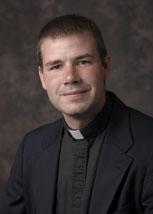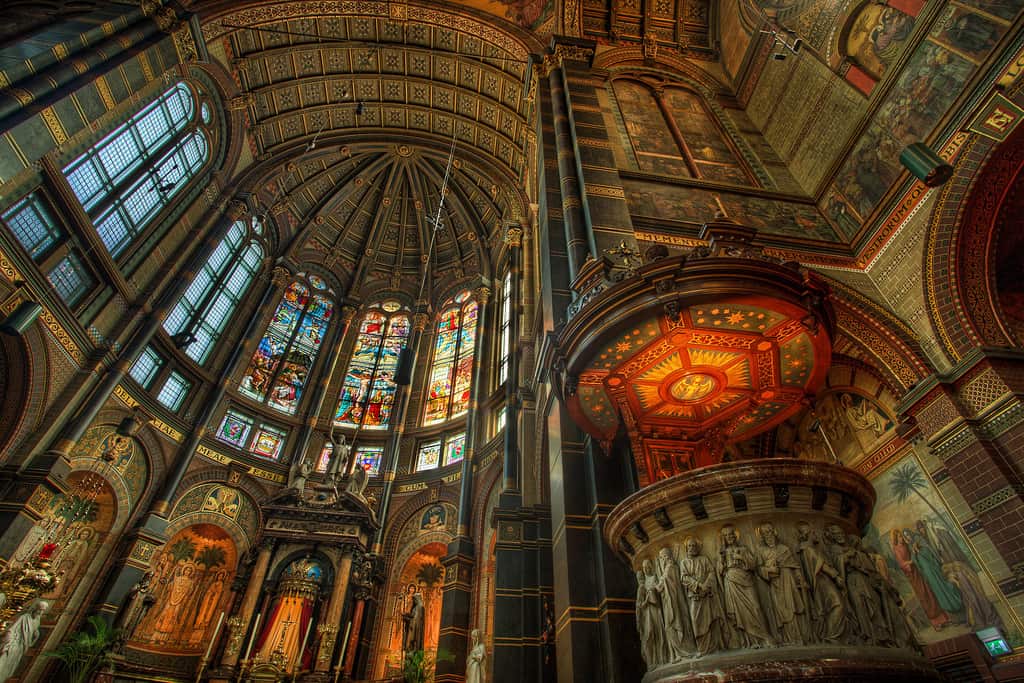Editor’s Note: On August 2nd, we learned that Pope Francis was calling a “high-stakes” commission to study the possibility of women deacons serving in the Church. The internet immediately blew up, with some voices praising the commission as the sign of a more inclusive, listening Church while others expressed concern about breaking with tradition. To try to understand this issue better, I sat down with Luke Hansen, SJ on August 13. Luke is a theology student at the Jesuit School of Theology in Berkeley, CA, and will be ordained to the transitional diaconate in October. He has focused many of his academic efforts at exploring women’s issues in the Church.
The following has been edited for clarity and length.
Dan Dixon (DD): On August 2nd, Pope Francis called together a commission to study the possibility of ordaining women to the diaconate. It’s my understanding that the Church has looked at this issue before. What’s different this time?

Luke Hansen, SJ
Luke Hansen (LH): In 2002 the International Theological Commission issued a report on the diaconate in general. In two small sections of a much larger study, the ITC noted that women served the Church as deacons for several centuries. They did not reach any conclusion about the appropriateness of a return to this ministry. This new commission, by contrast, is specifically studying women deacons and the possibility of women serving in this ministry today. Furthermore, this commission has an equal representation of women and men — 6 of each.
DD: So whose idea was it to actually get this commission going?
LH: The issue was brought to Pope Francis by a group of 900 religious sisters and nuns who are leaders of their religious congregations. These are women who are working on the frontlines, who have the pulse of what many people in the Church are thinking and feeling. Before they met with Francis in May, they heard a clear message from members of their congregations: “We are already doing the ministry of permanent deacons. By being able to preach and preside at weddings and baptisms, think of how much more we could accomplish!”
DD: Is there anyone on this commission that interested Catholics should know about?
LH: Dr. Phyllis Zagano, who teaches at Hofstra University in New York, is the leading scholar on women deacons in the world. What’s especially striking is that Dr. Zagano is a well-known proponent of ordaining women to the diaconate. This is extraordinary — it shows that the commission has a legitimate diversity of opinion, and we can expect some healthy dialogue to emerge.
DD: How do you think Dr. Zagano would respond to the voices in the Church who worry that ordaining women to the diaconal ministry would break from tradition — that Jesus intentionally missioned twelve men to hold this particular office?
LH: It’s important to clarify that we believe bishops are the successors of the twelve apostles and that bishops ordain priests to assist them in that ministry. Dr. Zagano would emphasize — and I agree with her — the difference between the ministry of bishops/priests and the ministry of deacons. We can’t forget that women served the Church as deacons for twelve centuries. While priests and bishops are ordained into a ministry of leadership, deacons are ordained into a ministry of service. Even though all three receive the same Sacrament of Holy Orders, there is also a substantial difference between these ministries.
DD: Despite these differences between deacons and priests, many have invoked the omnipresent “slippery slope” argument: that if the Church ordains women to the diaconate, priesthood will automatically come next. Do you think these two key issues regarding the role of women in the Church are related?
LH: In one sense, the diaconate is related to the priesthood, and in another sense, it’s not.
The important thing about this commission is that they’re going to have a conversation. The fact that you and I are even having a conversation about this right now — it’s a great sign. Francis has emphasized over and over again the importance of a synodal Church and a listening Church. He wants a Church that discusses issues openly, that leaves room for the Holy Spirit. A lot of people have strong feelings about whether women should be priests or not. I think conversation between these two sides is essential.
Pope Francis has repeatedly emphasized that the possibility of women in the priesthood is not an open question. So, it’s clear that he sees these two issues as distinct. This commission is about exploring the possibility of women in the Church serving as deacons, not priests.
However, outside of formal commissions, I think we need to be having informal conversations about both issues. We should make ourselves readily available to listen to the voices of women in the Church who feel marginalized. We also should be familiar with the reasons why women are not presently ordained as deacons, priests, and bishops in the Catholic Church.
DD: How did you get interested in this issue of women deacons in the Church?
LH: Mostly through my experiences working with so many talented women who bring a lot to the Church. They have been instrumental in my formation — as spiritual directors, professors of Scripture and homiletics and in other roles.
Many of these women have experienced barriers in their life of ministry. In some cases, their gifts have not fully been put to use in the parishes where they work. So many have the gifts of preaching and liturgical leadership. It seems to me that the diaconate is one opportunity for the Church to put these many gifts into action.
DD: You are preparing for ordination to the diaconate in October. What, in your view, is being a deacon all about?
LH: Deacons embody a ministry of service.
We’re still learning what the diaconate is all about. For 800 years — from the 1100s to the 1960s — there was no permanent diaconate in the Church. The only deacons were those on their way to becoming priests. Vatican II restored permanent deacons to the Church, so it’s both an ancient ministry and a new ministry. We see deacons preaching on Sundays, presiding over weddings and baptisms, and performing charitable ministries on behalf of the Church.
DD: When you think about the upcoming commission, what is your prayer for the twelve members?
LH: My prayer for them is that they are discerning. I hope they don’t look at historical practice as rigidly dictating what we can or cannot do today. Discernment would mean that alongside crucial historical and theological evidence, there will be serious consideration of the pastoral needs of people in the Church today. This means that a range of voices will be heard. I pray that the members will leave room for the Holy Spirit — through their prayer, reflection and conversation. We have to be willing to listen to the Spirit.
DD: Is there anything else you’d like our readers to know about the issue of women deacons in the Church?
LH: I’ve been really moved when I’ve listened to the stories of women who feel called to the permanent diaconate. Women who are interested in ordained ministry are often accused of simply wanting power in the Church, even though men who apply to the seminary are not blanketly accused in the same way. I’ve studied with many women who are drawn to preaching, sacramental ministry, and ministries of service and charity. They would make terrific deacons.
Pope Francis keeps telling us that our Church needs to evangelize — that we always need to reach more people. These women are well prepared to serve in the diaconate, and I wonder how many more people the Church could reach if these women were ordained as deacons.
– // –
Cover image by Jacob Surland can be found here.


